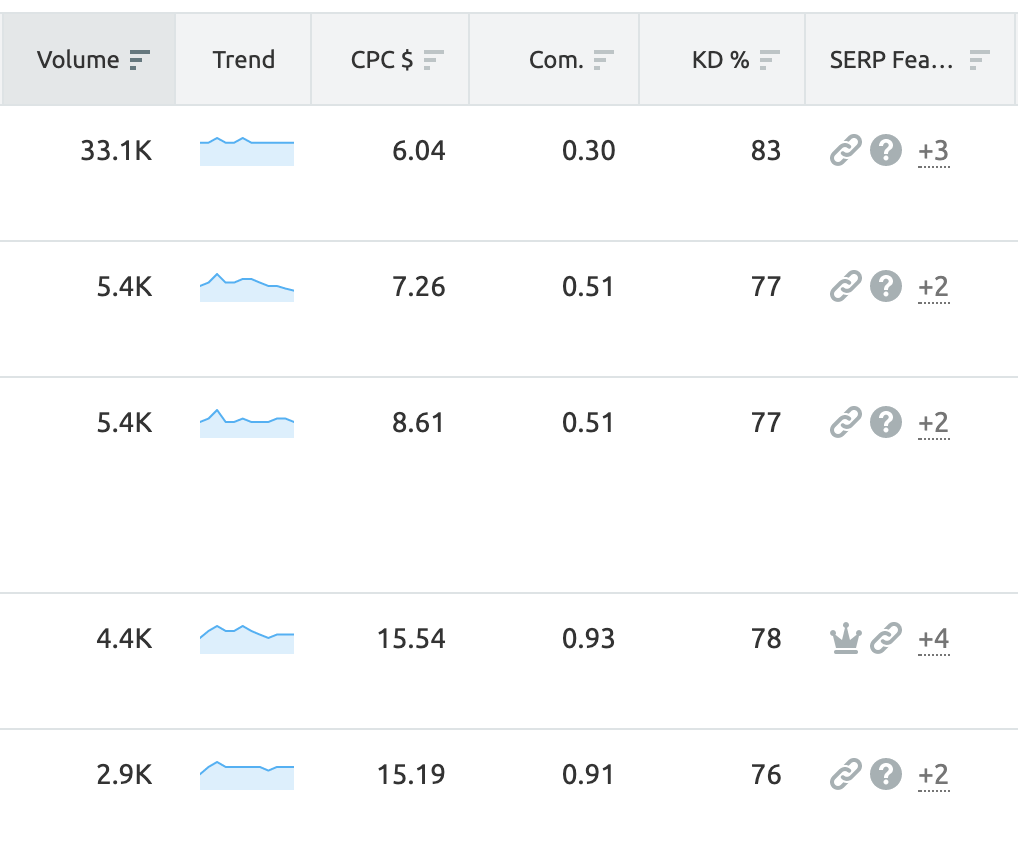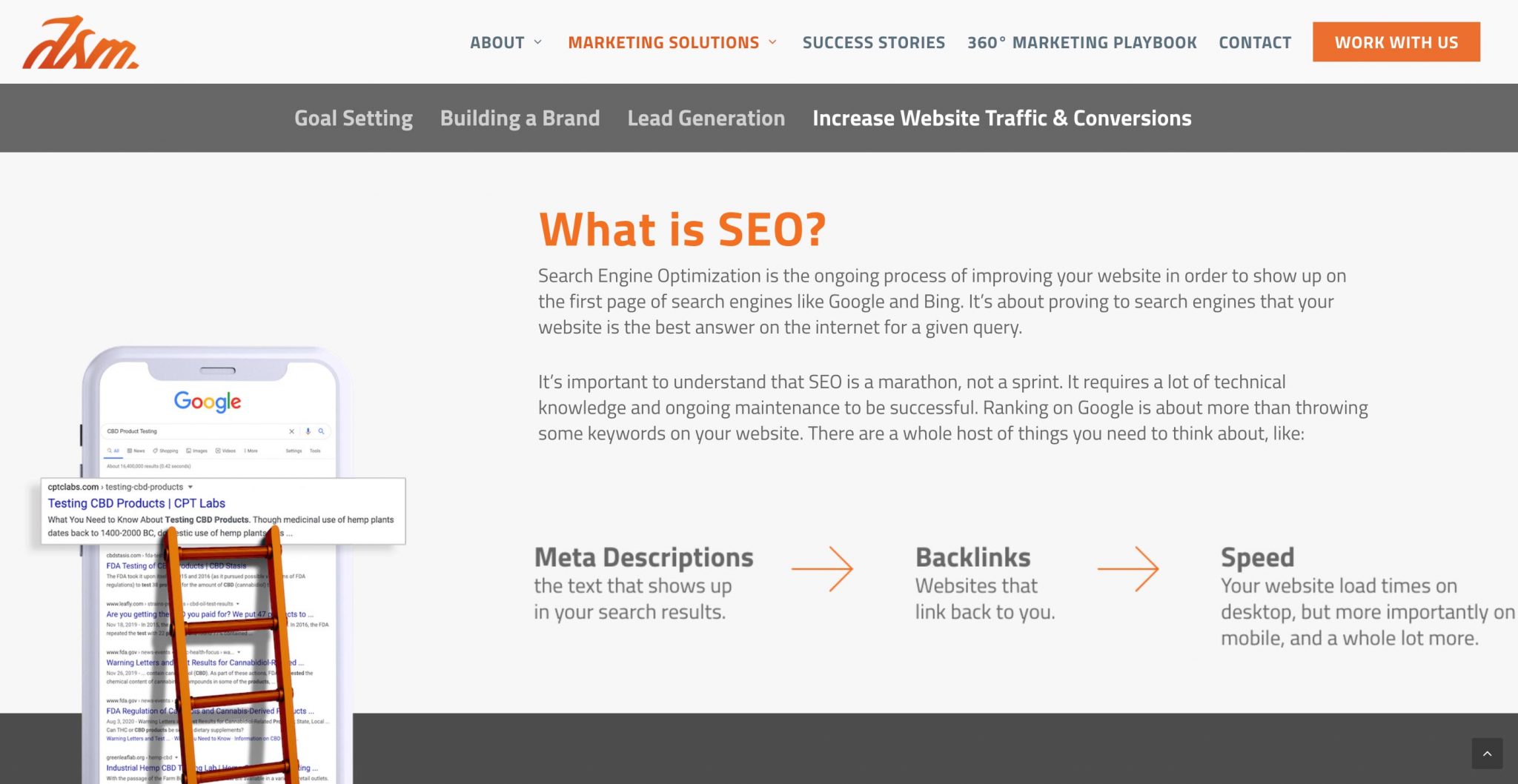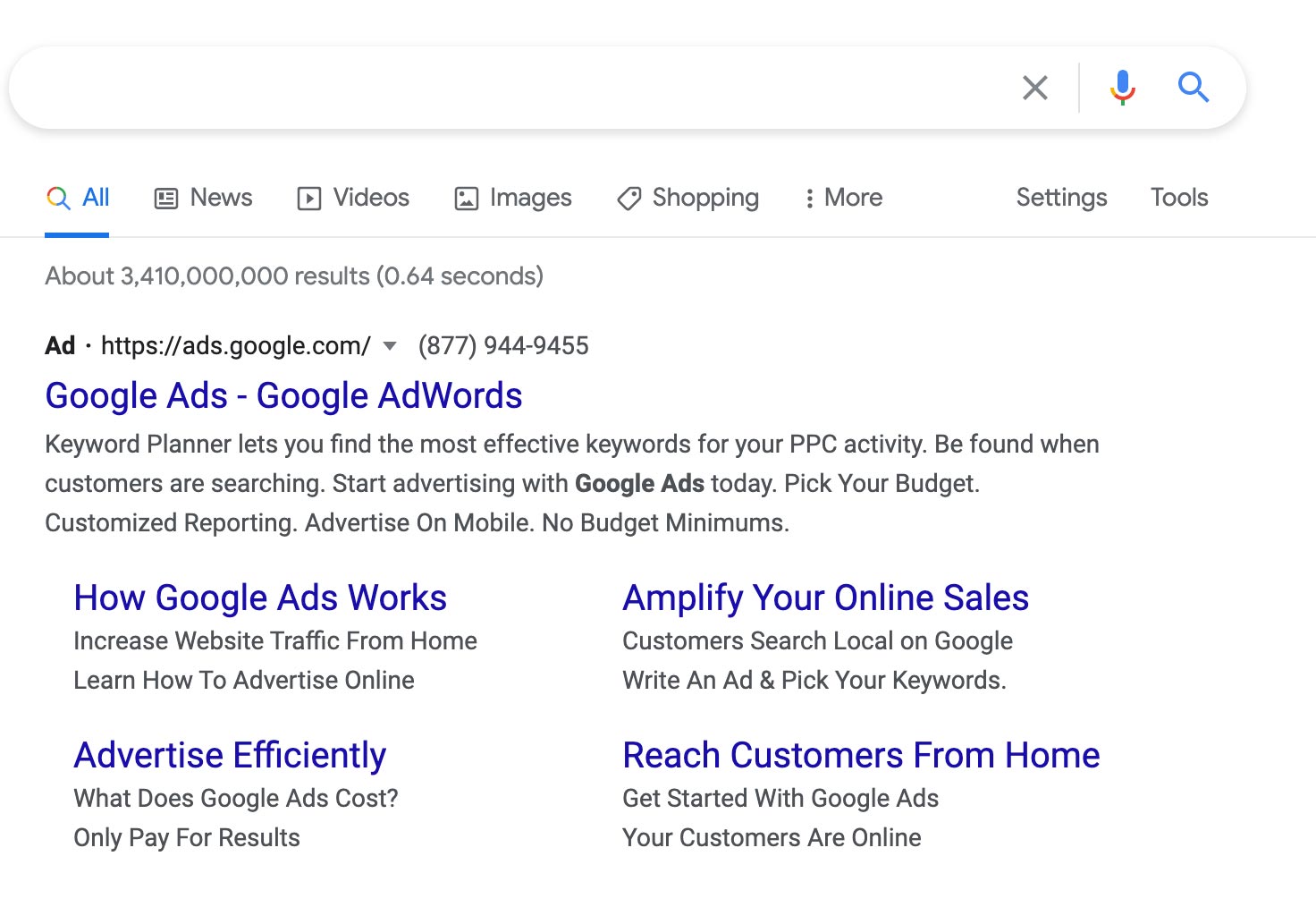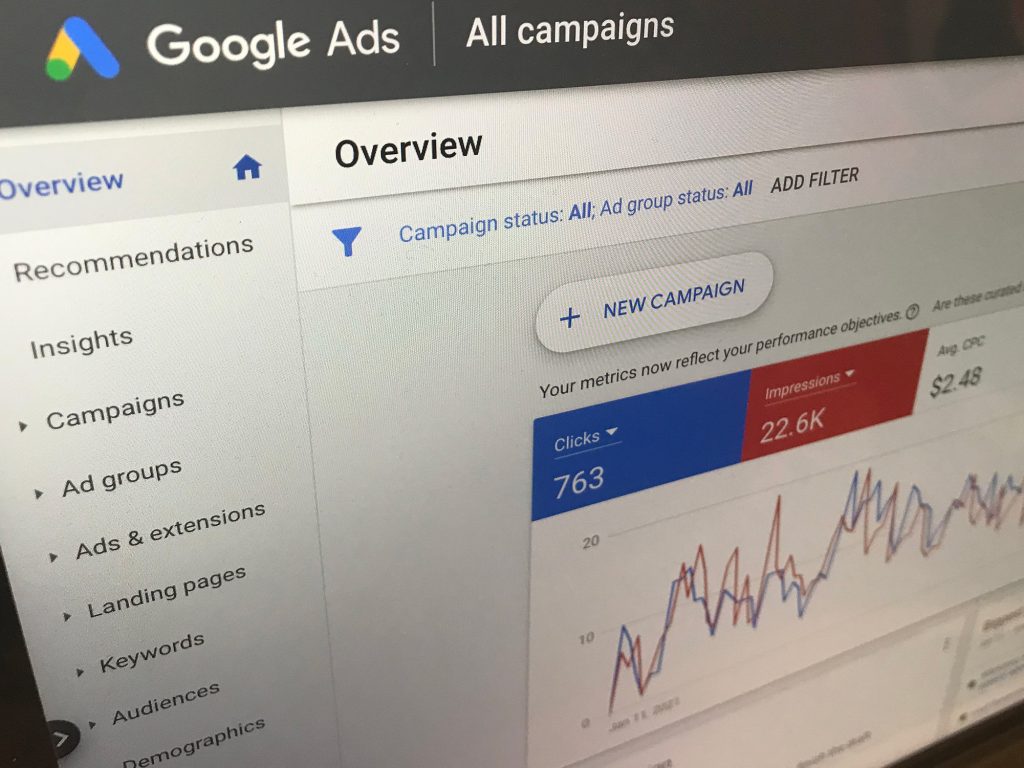What is PPC Marketing?
Pay-per-click marketing is an advertising method where the advertiser pays a fee each time one of their ads is clicked. Search engines reward advertisers who create relevant, content-driven landing pages that provide users a clear solution to their search.
How and where do these ads appear? Search engines, like Google and Bing, show ads on the search engine results pages (SERPs) that match specific keywords that the advertiser has chosen to bid on.
These ad placements are sold in private, automated auctions using real-time data including, the bid amount an advertiser is willing to spend, the quality of the ad and landing page, and more to decide which ads will appear in the top position and the other positions on the page.
Knowing how PPC marketing works is one thing, but how do you become a pay-per-click advertising master? The six steps below will set you on the path, and with help from a PPC advertising company in NJ like DSM, you’ll be driving traffic to your site in no time!

Develop a PPC Marketing Strategy
Define Your Goals
The first step in any successful PPC marketing campaign is to plan and develop your strategy. Determine a service or product you want to market and consider your goals and definition of success for the campaign. Make sure you are using SMART (specific, measurable, achievable, relevant, time-bound) goals to ensure you are able to accurately determine your success. A goal of increasing the number of phone calls about your service by 20% in the next six months is a great example of a SMART goal.
Start Researching Keywords for Your PPC Campaign
Now that you have goals outlined, it’s time to start building your pay-per-click campaign out with keyword research. Start with what a customer would search online in order to find the service you are promoting. Then, expand out to searches of related services or similar products. These will be the core keywords of your strategy.
Don’t forget to include question-based searches that your audience may ask search engines! As you select keywords, make note of the average cost per click, which will help you define your budget for ad spend. Without an adequate budget, all your work may not be seen or drive the traffic you want.
Begin Building Out Your PPC Campaign Deliverables
With your campaign strategy, goals, and keyword research in hand, it’s time to begin building out your deliverables! The primary deliverables for a successful PPC marketing campaign are ad copy that grabs user’s attention, attractive landing pages, and the proper ad extensions to fully utilize all that the search engines have to offer.
Write Your Ad Copy
Compelling headlines and ad copy is the pivotal element that will either drive a user to click or skip your ad. Headlines should include keywords from the ad to reiterate that you are the answer to their search and grab the user’s attention. Ad copy should answer the user’s search and showcase your expertise or highlight an offer to compel them to click your ad. You should have at least three unique headlines and ads for each product or service you are advertising.
Develop a Landing Page
A well-designed landing page captures user’s attention and drives users to become leads and sales, while a poor landing page can cause all the clicks you paid for to go to waste. Don’t miss your opportunity to convert site visitors into leads!


Set Up Your PPC Marketing Campaign
You have all your prep done and have killer ads that you are ready to unleash on the world. Now what? You need to set up your accounts in the ad platforms, like Google Ads, and create your campaign, ad groups, ads, ad extensions, and set budgets. Once you have everything set, it’s time to flip the switch! Turn your ads on, pat yourself on the back for a job well done, and let the search engines do their thing. But you’re not done yet!
Review Your PPC Campaign Results and Optimize
Once your campaigns are running and driving traffic to your site, there is still work to be done. Reviewing and optimizing your campaigns based on their performance is a critical element of mastering PPC marketing. Examining your quality score, click-through rate (CTR), and conversions in the ad manager and traffic data in your analytics dashboard is vital to assessing the effectiveness of your ads. Identifying ads that aren’t performing well and adjusting them with different ad copy or headlines is a good starting point for optimizing underperforming ads.
Ads that are performing well can be further optimized by adding more variations, increasing the budget, or tweaking the landing page to convert more users. Additionally, you can also use data from your ads to determine additional keywords you didn’t consider at the beginning to continue expanding your ads and to plan for the seasonality of the business.


